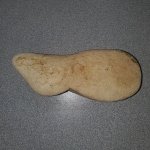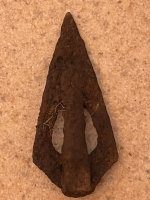rags-to-riches
Greenie
- Mar 9, 2013
- 16
- 0
- Primary Interest:
- All Treasure Hunting
Hey everyone! I'm new to gold panning, and live in central ohio. I am panning a small creek by my house and am finding alot of cool shiny stuff and found my first flake today! My problem is the creek doesn't seem to have a "riverbed" just a hard clay bottom. I see all types of stuff stuck to the clay but am having a hard time separating it. Also, I'm getting into clay in about 4"...should i dig past the clay? If I post some pics could you point out some spots!? Thanks!!!!






